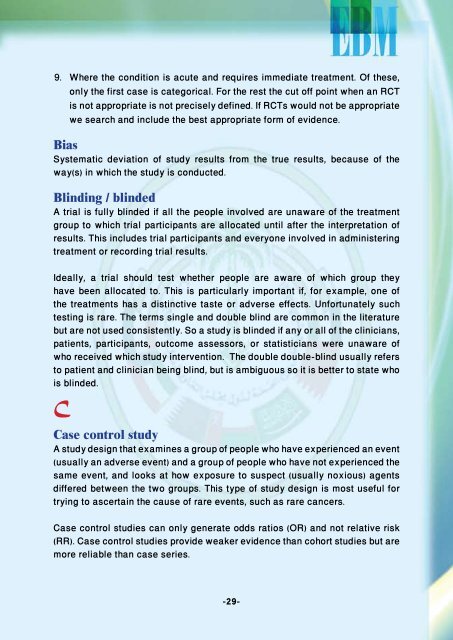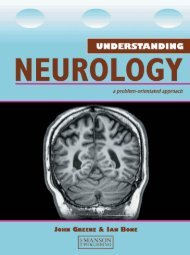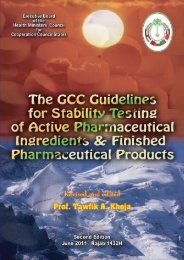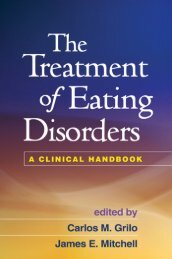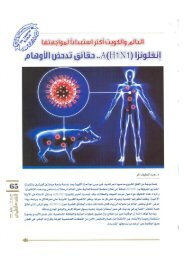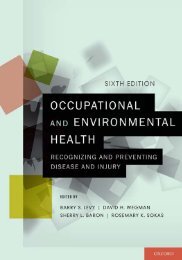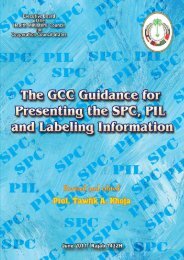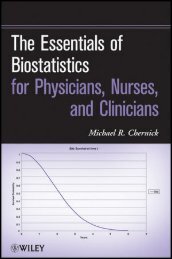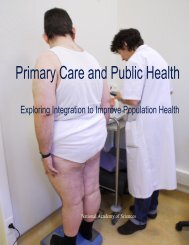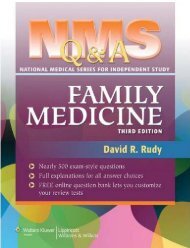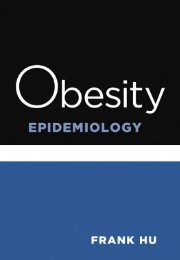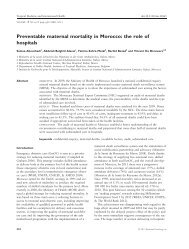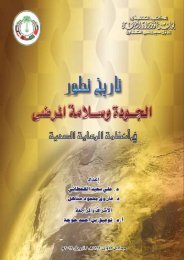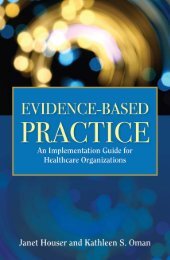Evidence-Based Medicine
Evidence-Based Medicine
Evidence-Based Medicine
Create successful ePaper yourself
Turn your PDF publications into a flip-book with our unique Google optimized e-Paper software.
9. Where the condition is acute and requires immediate treatment. Of these,<br />
only the first case is categorical. For the rest the cut off point when an RCT<br />
is not appropriate is not precisely defined. If RCTs would not be appropriate<br />
we search and include the best appropriate form of evidence.<br />
Bias<br />
Systematic deviation of study results from the true results, because of the<br />
way(s) in which the study is conducted.<br />
Blinding / blinded<br />
A trial is fully blinded if all the people involved are unaware of the treatment<br />
group to which trial participants are allocated until after the interpretation of<br />
results. This includes trial participants and everyone involved in administering<br />
treatment or recording trial results.<br />
Ideally, a trial should test whether people are aware of which group they<br />
have been allocated to. This is particularly important if, for example, one of<br />
the treatments has a distinctive taste or adverse effects. Unfortunately such<br />
testing is rare. The terms single and double blind are common in the literature<br />
but are not used consistently. So a study is blinded if any or all of the clinicians,<br />
patients, participants, outcome assessors, or statisticians were unaware of<br />
who received which study intervention. The double double-blind usually refers<br />
to patient and clinician being blind, but is ambiguous so it is better to state who<br />
is blinded.<br />
C<br />
Case control study<br />
A study design that examines a group of people who have experienced an event<br />
(usually an adverse event) and a group of people who have not experienced the<br />
same event, and looks at how exposure to suspect (usually noxious) agents<br />
differed between the two groups. This type of study design is most useful for<br />
trying to ascertain the cause of rare events, such as rare cancers.<br />
Case control studies can only generate odds ratios (OR) and not relative risk<br />
(RR). Case control studies provide weaker evidence than cohort studies but are<br />
more reliable than case series.<br />
-29-


